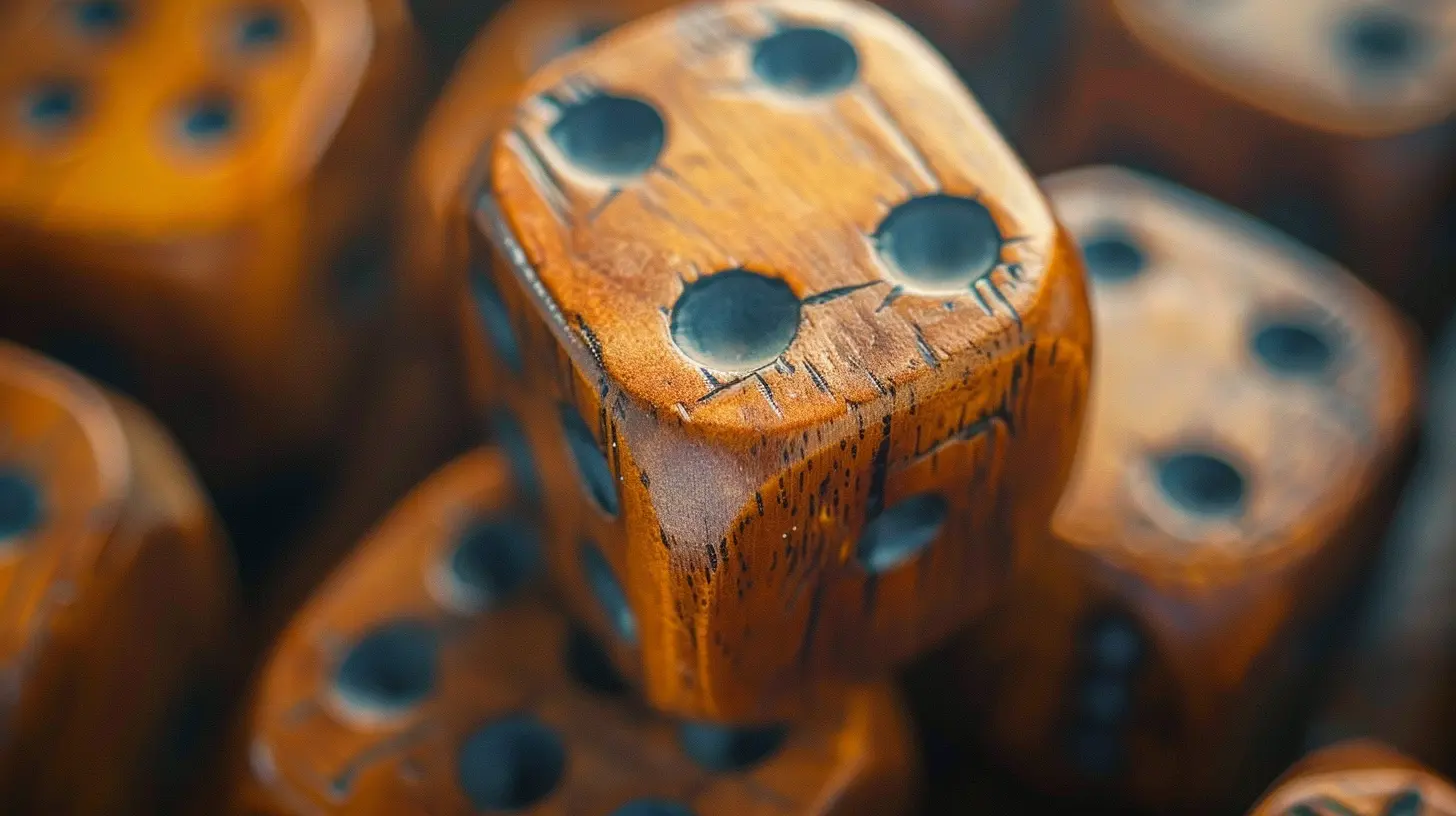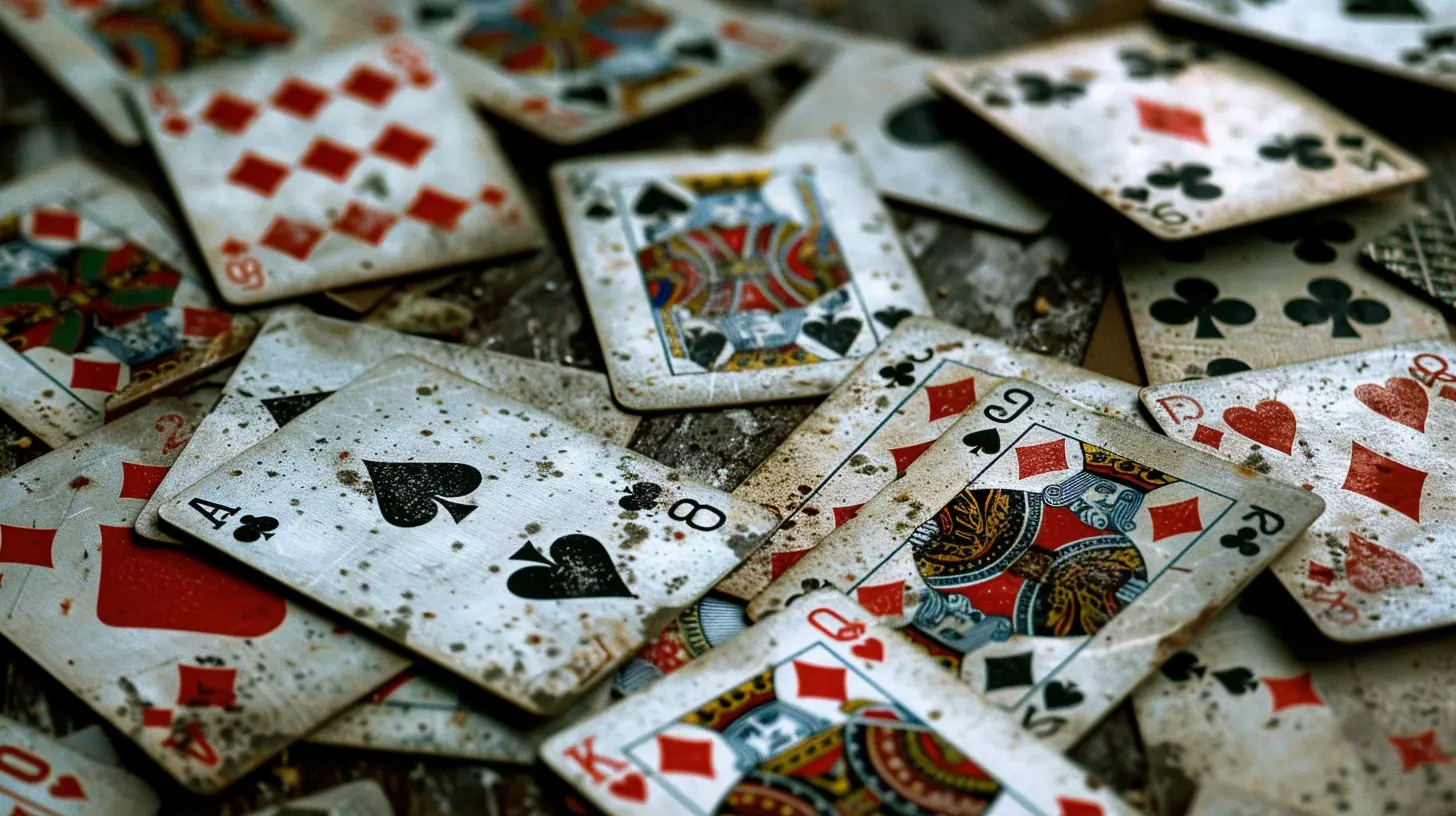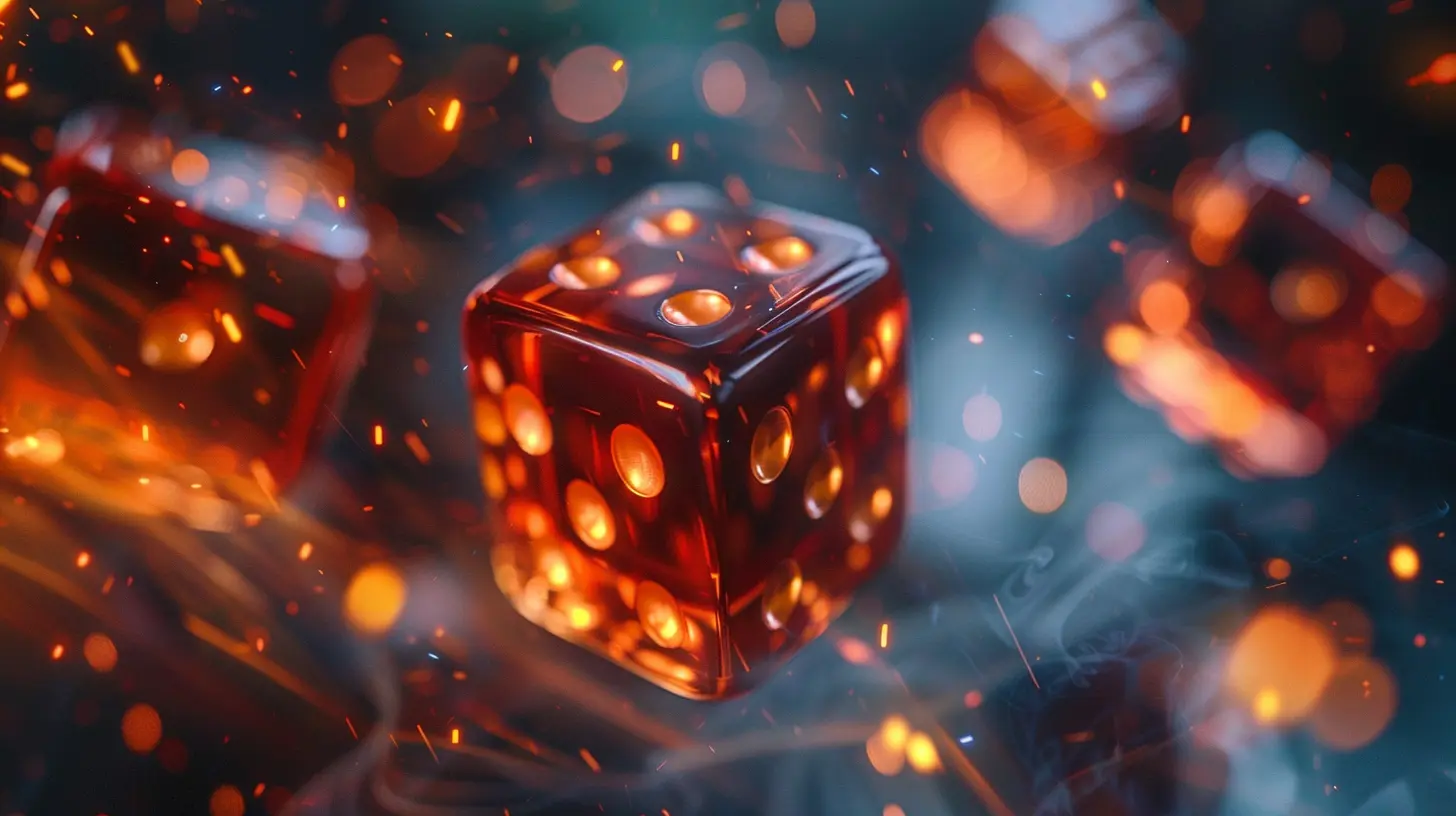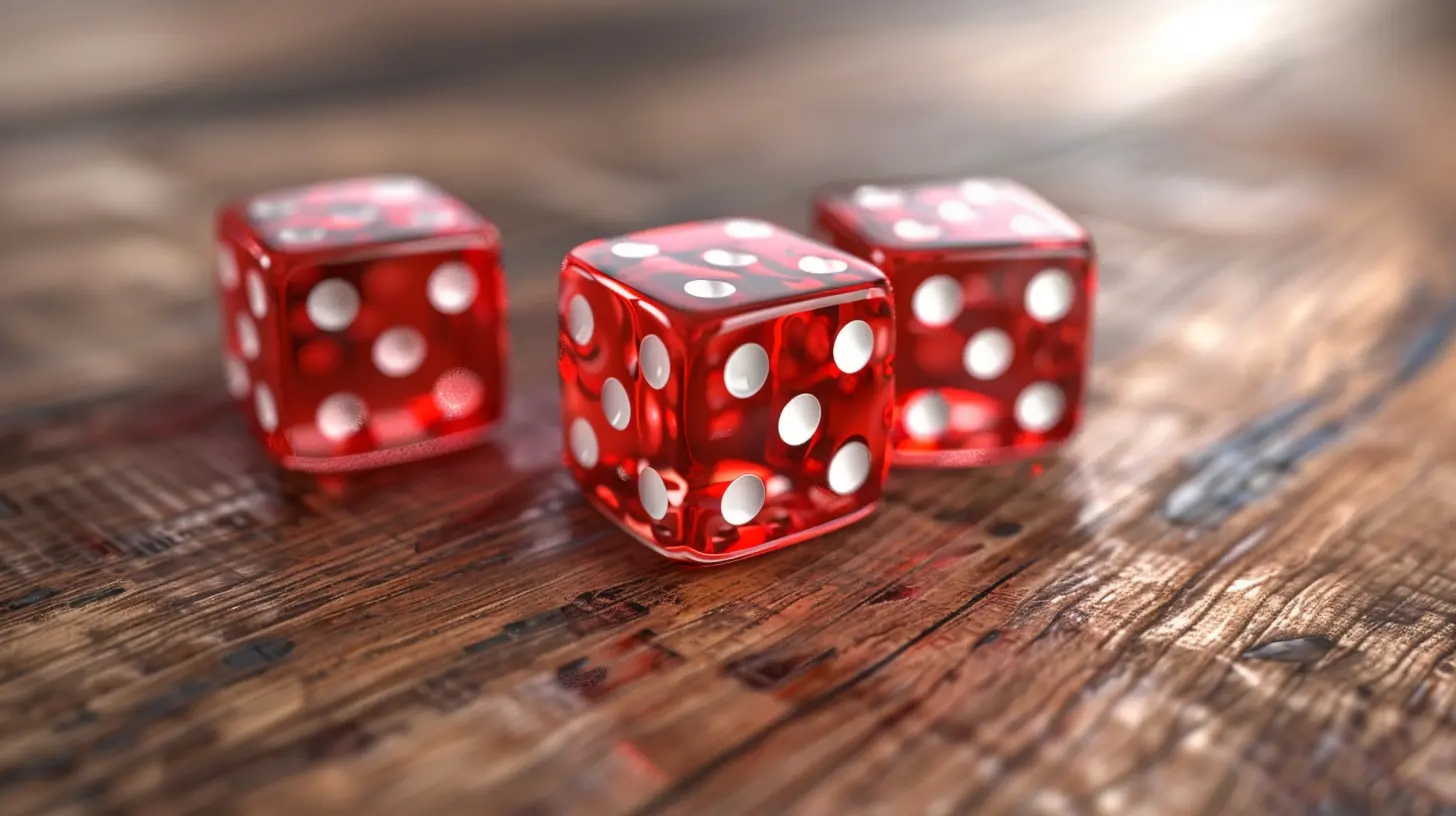Understanding Probability to Improve Your Card Game
18 August 2025
Ah, probability – the magical math pixie that gamblers pretend to understand and card sharks whisper sweet nothings to at night. Whether you're losing (again) at Poker, getting smacked around in Blackjack, or just trying not to embarrass yourself playing Rummy with your grandma, probability is that sneaky little ingredient that can turn you from “perpetual loser” to “smug winner sipping a celebratory beverage.”
Let’s face it: card games are not solely about luck. (Sorry, “lucky sock” wearers). They're about strategy, skill… and yes, math. I know, you probably didn’t sign up for algebra when you sat down for game night, but stick with me. I promise this will be more fun than high school trig and might actually help you win something for once.

What Even Is Probability Anyway?
Good question, my skeptical reader. In the simplest terms, probability is the chance that something will happen. Like the odds your opponent is bluffing, or you’ll finally draw that one card you’ve been praying for since the game started. The universe doesn’t rig card draws (even though it feels like it sometimes), and understanding how probability works might just give you the upper hand.Think of probability as your invisible sidekick. It's not flashy, but it helps you make smarter decisions in your card game adventures. And who doesn’t want a superpower that’s all about predicting the future?

Card Games: Where Math Meets Mayhem
Let’s break it down. Most card games involve a standard 52-card deck (unless you're off playing Uno, in which case, enjoy the chaos). So, whether you're trying to win with a flush, go all-in with a full house, or just avoid totally bombing your game, probabilities are silently shaping every move.When you know what’s likely to show up in a deck next, you’re not just playing—you're calculating, scheming, and maybe even intimidating your opponents just a little. You’ll be able to make better calls, smarter bets, and faster decisions.

Why Most Players Totally Ignore Probability (And Why You Shouldn't)
Let me guess—you usually just “go with your gut,” right? Spoiler alert: your gut has no math degree. Most casual card players rely on instinct, superstition, or that one winning strategy their cousin Vinny swore by.Here’s the thing: ignoring probability is like trying to navigate a maze blindfolded. Sure, you might stumble into success once, but most of the time? You’re walking face-first into dead ends. Wouldn’t it be better to play like someone who actually knows which way to turn?

The Basics of Probability in Card Games (Don't Worry, No Calculator Needed)
We’re not doing any complex equations. Promise. Let’s just get you comfy with the basic odds that can make or break your performance at the table.1. Know the Deck
A standard deck has 52 cards. Four suits: hearts, clubs, diamonds, spades. Each suit has 13 cards. Knowing this gives you a sense of what’s out there and what’s probably already in play.Quick Math: The chance of drawing a spade from a full deck is 13 out of 52, or about 25%. Boom. Easy, right?
2. Understand What’s Left
Every time someone plays a card, your deck changes. Probability isn’t static—it evolves. Smart players keep mental notes. Did three players just drop a Queen? Then your chances of pulling the fourth just took a nosedive. Adjust accordingly.3. Event Probability
This is just a fancy way of saying: what are the odds of something specific happening? Like, what are the chances you’ll draw the exact card you need?Let’s say you need an Ace, and only one remains in the deck of 20 cards (because most are already played). That’s a 1 in 20 shot, or 5%. Not terrible… but not amazing either. Probably don’t bet your rent money on it.
4. Compound Events (a.k.a. Things Get Real)
Want to know the odds of drawing two Aces in a row? That’s where compound probability steps in. Multiply the chances of one event with the next. If your deck has all 52 cards, the first Ace is 4/52. Pull that, and the second Ace is 3/51. Multiply those together and boom: 0.45%. Ouch. Good luck with that, cowboy.Practical Card Game Situations Where Probability Saves Your Bacon
Let’s spice things up and see how this math mumbo-jumbo plays out in real-life scenarios at the card table.Poker: Reading the River Like a Psychic
You’re holding two hearts, and there are two hearts on the board. You need one more for a flush. There are 9 hearts left in the remaining 47 cards. That gives you roughly a 19% chance.Should you go all in?
Well… probably not unless the pot is juicy, or you’re good at bluffing. Knowing the odds helps you decide how much risk is worth taking.
Blackjack: To Hit or Not to Hit, That Is the Question
Got a 16? Dealer shows a 10? You’re sweating buckets. What do you do?If you know that more than 30% of the remaining cards could bust you, and the dealer has a high chance of beating your 16, maybe it’s time to hit and pray. Probability guides you toward the least terrible decision.
Rummy: Counting Cards (Yes, Like Rain Man)
Keeping track of which cards have already shown up helps you figure out what’s still lurking in the deck. Do you go for that meld, or is it a pipe dream? The more you know, the better your plan.
Common Misconceptions About Probability in Card Games
Let’s bust some myths, shall we?“I’m due for a win!”
You’re not. Sorry. Cards don’t care how many times you’ve lost. Each draw is independent (unless you’re cheating, in which case, shame on you).“If I draw three low cards, the next one HAS to be high!”
Nope. That’s called the Gambler’s Fallacy. The universe doesn’t keep a balance sheet.“I feel it in my gut!”
Your gut also thought buying Beanie Babies was an investment. Let’s not trust it too much.How to Actually Use Probability During a Game (Without Looking Like a Nerd)
You don’t need to be a walking calculator. Just develop a feel for what’s likely or not.- Pay attention to cards already played.
- Don’t chase hands with terrible odds.
- Know the “outs” — the number of cards that could help you.
- Adjust your strategy based on what's in the deck vs. what's in your hand.
- Most importantly: stay calm, stay focused, and don’t let desperation make your decisions.
You don’t need to mutter equations under your breath and scare away your friends. Just take a beat, think about the odds, and make a smarter call than the guy next to you who’s hoping for divine intervention.
Improve Your Win Rate with Simple Probability Strategies
Here’s a few no-B.S. ways to get better at cards using probability:1. Learn the Odds Per Game
Different games have different key probabilities. Don’t use Poker logic on a Solitaire game. That’s like taking a chainsaw to butter.2. Practice in Low-Stakes Games
Test your probabilistic skills where the pressure’s off. That way, when it matters, you’re ready.3. Use Cheat Sheets (Shhh, It’s Not Really Cheating)
Keep a reference for odds handy while you’re learning. Eventually, you’ll internalize it and won’t need the training wheels.4. Watch and Learn
Watch skilled players and see how often they make lucky guesses or calculated moves. Spoiler: it’s usually the latter.When to Throw Probability Out the Window (Almost Never, But Okay...)
Look, we all love a good reckless move every now and then. There’s a certain thrill in telling the odds to shove off and going all in for the hell of it.Every card player has had that moment where logic takes the backseat and adrenaline grabs the wheel. It’s fun. But if you want consistent wins? Stick with probability. Use YOLO-moves as seasoning, not the whole dish.
Final Thoughts: Probability Is Your Superpower
So, yeah. Probability isn't just a nerdy word math teachers throw around. It's a legit weapon at the card table. And now, you’ve got it in your corner.Next time your opponent towers over the game with blind faith and bravado, smirk to yourself. You’re not playing with hope. You’re playing with knowledge, strategy, and math magic.
Are you guaranteed to win every game? Nope.
But will you be making better decisions and leaving less to chance? Absolutely.
So shuffle up, keep count, and let probability guide you to glorious, brag-worthy victories (finally).
all images in this post were generated using AI tools
Category:
Card GamesAuthor:

Kaitlyn Pace
Discussion
rate this article
1 comments
Primrose Wilkerson
Probability in card games? Who knew math could be so thrilling? Next, they'll tell us dice rolling involves geometry! Just remember, the only thing guaranteed is my ability to lose spectacularly—math or no math!
September 10, 2025 at 2:36 AM

Kaitlyn Pace
Haha, it's true! Math makes the game more exciting, and even if losing is part of the fun, understanding probability can give you a better shot at winning! Keep playing!


